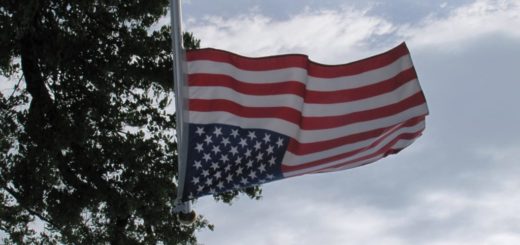Trump Espouses Chamberlainism
“The White House confirmed” — the building itself does the talking nowadays, since none of the occupants can string a grammatical sentence together — “the weapons cutoff would happen.” Yet again, Donald Trump reveals for all the world (a) his fawning admiration of Islamist strongman Recep Tayyip Erdoğan, (b) his Neville Chamberlain underwear, and of course (c) that he’s a moron.
From the Chicago Tribune:
“Consistent with our previous policy, President Trump also informed President Erdoğan of pending adjustments to the military support provided to our partners on the ground in Syria, now that the battle of Raqqa is complete and we are progressing into a stabilization phase to ensure that ISIS cannot return,” the White House statement said, referring to the recent liberation of the Syrian city that had served as the Islamic State’s de facto capital.
The decision to stop arming the Kurds will remove a major source of tension between the United States and Turkey, a NATO ally. But it is likely to further anger the Kurds, who already feel betrayed since the United States told them to hand over hard-won territory to the Syrian government.
There might be a way to parse this as a brilliant strategic move by Trump. I’m sure his fan boys all over the conservative media will be awake all night trying to come up with something. Perhaps I can help them sort it all out by clarifying the issue:
Erdoğan is a thug, a dictator, and devoted to establishing a global caliphate, preferably with himself as Islamism’s most exalted hero.
Trump loves Erdoğan because he is an authoritarian thug (the Islamism part is over his head, naturally), just as he admires Putin, Xi, and, until they got into their mean girl name-calling spat, Kim. Trump admires political strongmen because he wishes he could be like them, much as an actor who frequently plays mobsters might develop a fascination with mafia bosses, or as any professional actor might develop an obsession with the real life instantiations of the character types he has long played on TV.
Trump has played a ruthless, fearless tough guy for decades, and, apparently being too childish and self-indulgent to understand the difference between reality TV and reality itself, he has developed an unhealthy love for the character type. He wishes he had a real strongman’s gall, the rashness in crushing civilized opposition, the fearlessness in killing innocents and opponents to further his ends. He admires such men much the same way his own cult admires him, except that he knows what his cult followers cannot accept, namely that his thuggery is all tweet-deep, while in reality he is a first class sissy, as his sensitive-girl SNS hissy fits reveal with embarrassing regularity.
So how, in the end, will Trump’s devotees justify his direct concession to the anti-Kurdish demands of Turkey’s Islamist dictatorship, which creates the optics of a complete sell-out of America’s only consistent and reasonably trustworthy ally in the Iraq war? That remains to be seen, and ought to be amusing, as the most elaborate intellectual pretzels can be; but in the meantime, American Thinker’s Rick Moran takes this initial shot at a rationalization:
The Kurds are a minor player in a strategic part of the world. The U.S. fully understands their desire for an independent state but also knows the impossibility of that dream at the present time. The Kurds are spread out in an arc from Syria through Iraq into Iran, Turkey, and Armenia. The idea that all five of those states would allow a carve-out of their territory to satisfy Kurdish ambitions is absurd.
So the Kurds are trapped by history and events. As our most reliable and skillful ally in Syria, the Kurds performed very well. But the present realities regarding Turkey make continued support for the Kurds problematic.
It may seem like weakness to cave in to Erdoğan’s demands, but once again, reality intrudes. Turkey is a member of NATO, despite electing an Islamist president. Turkey has always played a vital role as a western bulwark against Russian expansion into southern Europe, and despite all, it continues to play that role today.
Well, then. That sounds reasonable enough…but why do I feel I’ve heard this argument before? Ah yes, now I remember! I can’t recall the exact wording from all the way back almost eighty years ago, but it seems to me it went something like this:
The Czechoslovaks are a minor player in a strategic part of the world. Britain fully understands their desire for an independent state but also knows the impossibility of that dream at the present time. The Czechoslovaks are spread out in an arc from Russia through Hungary into Austria, Germany, and Poland. The idea that all five of those states would allow a carve-out of their territory to satisfy Czechoslovak ambitions is absurd.
So the Czechoslovaks are trapped by history and events. As a reliable and skillful ally in WWI, the Czechoslovaks performed very well. But the present realities regarding Germany make continued support for the Czechoslovaks problematic.
It may seem like weakness to cave in to Hitler’s demands, but once again, reality intrudes. Germany is a leading nation of Europe, despite electing a fascist party. Germany has always played a vital role as a western bulwark against Russian expansion into western Europe, and despite all, it continues to play that role today.
Hmm…I guess the Trumpsters will have to come up with something a little better, or at least a little more original. They’ll be burning the midnight oil at Cult Headquarters (aka Breitbart) tonight.



